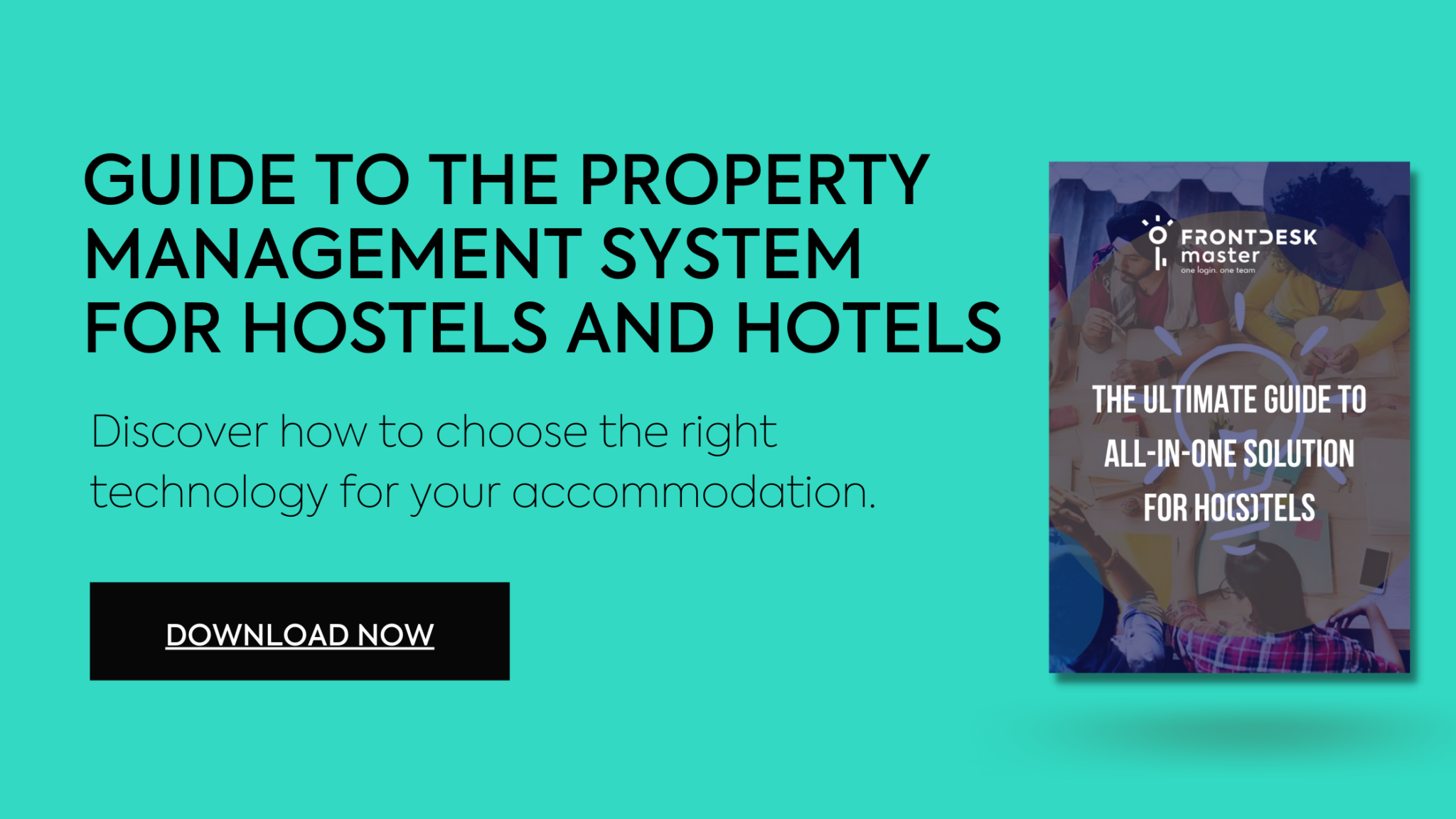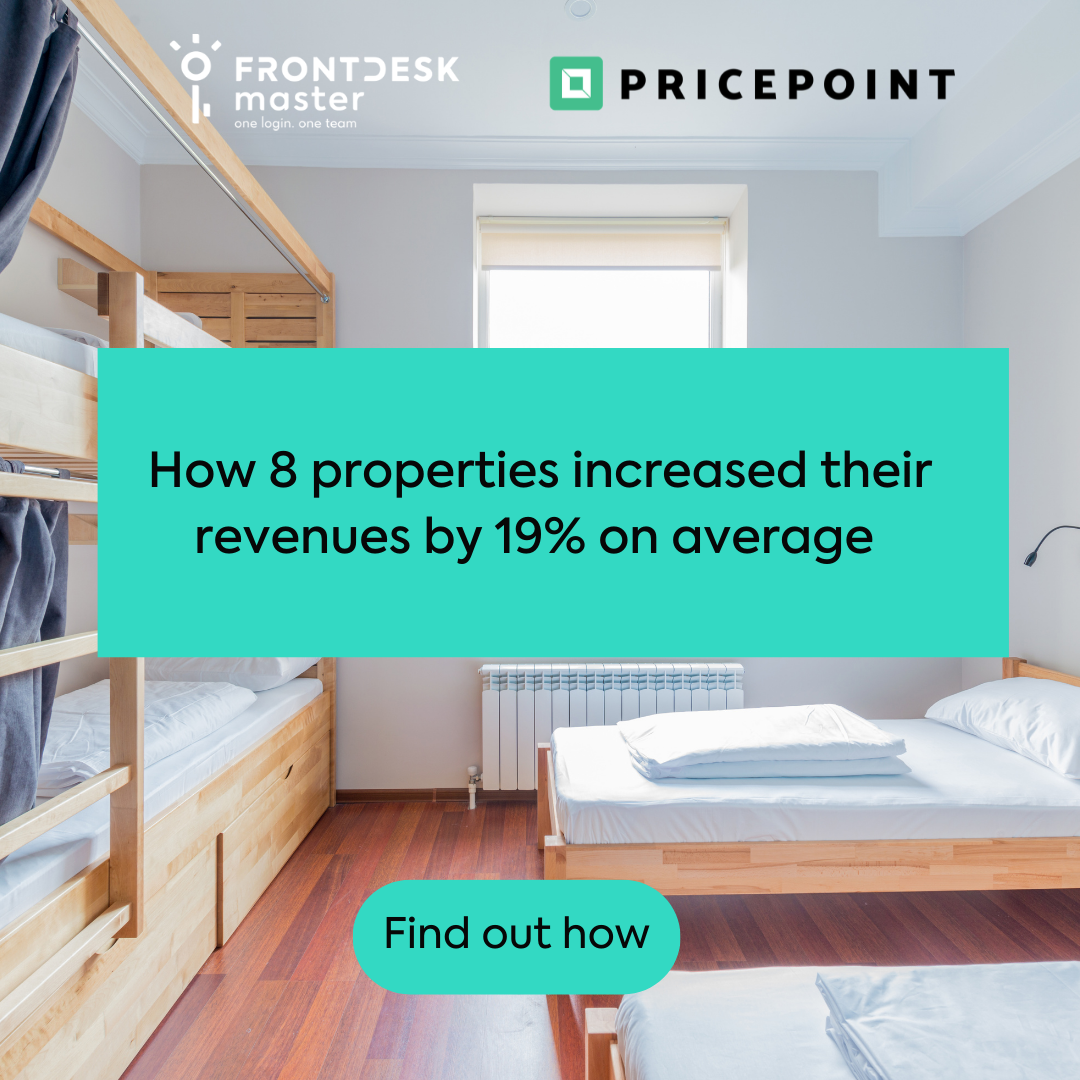Does hostel need a revenue management system? Overcome these 6 challenges

When is the price too low? When it’s too high? Where is the sweet spot with optimized occupancy where hostel revenues grow? If you’re doing revenue management in your hostel and usually you’re buried under the numbers, Excel sheets, and tracking competition moves, this post is for you.
Some hosts we’ve talked to feel there’s too much guessing in playing with prices. Like, is it even productive? They wonder if they’re not losing time – maybe they could attract the same guests anyway?
This blog post will cover the main challenges hostels face with their revenue management and how an automated revenue management system can help solve them.
What does revenue management mean?
Revenue management in a hostel means selling your inventory – rooms, and beds – at the right price and time to the right customer through the right channel. Simply put, you want to sell more with the minor costs involved and increase hostel revenues.
How is different revenue management in a hostel from a hotel?
The difference lies in managing different types of inventory. While hotels sell only private rooms, you sell beds at hostels, which you can also sell as private rooms. Adding to this more challenges like selling beds only for females or men.
In hotels, one of the key metrics is RevPAR (revenue per available room); in hostels, we talk about RevPAB (revenue per available bed).
How has revenue management evolved since the Covid-19?
Well, before, pricing strategy relied heavily on accommodation’s historical data. Not anymore.
As the market situation is uncertain and the travel demands heavily fluctuates, you need real-time data for the best pricing decisions. In the real-time data, we include things like travel restrictions, competition, demand, flight bookings, etc.
What kind of challenges do hostels face with revenue management, and how RMS can help to solve them
1. Limited budget
It’s not a secret that hostels are budget accommodations. Therefore, unlike big hotel players, they are unwilling to invest the same amount of money in revenue management or marketing.
What’s more, revenue management systems used to require a considerable investment.
Luckily this belongs to the past.
There are revenue management systems specializing in boutique hotels, smaller properties, and… yes – hostels. And if RMS can bring a 19% increase in revenues, this is a profitable investment.
For instance, Pricepoint’s (automated RMS) license starts from $49 a month. Its recent case study showed that the additional revenues generated in 8 properties were 20 times larger than the investment.
In fact, the first days with Pricepoint covered the monthly cost of it.
2. Lack of time
If there’s one thing hostellers don’t have too much, it’s time. Many hosts don’t have time to deal with constant rate optimization. Therefore they set up the same prices for the whole week and change them for the weekends. While it’s not the wrong strategy, it might cost you low occupancy or losing money by being sold out too early or not sold out at all.
What’s more, implementing new tools in hospitality is associated with time investment and training.
How can automated RMS solve this problem?
To begin with, you won’t need to struggle with setting the rates in the first place. Automated RMS works 24/7/365, which means it reacts to the changes in demand and optimizes your prices on autopilot.
If you still want to be in control, you can set up alerts, so once the price suggestions come out, you can accept them or decline via a mobile app.
Above all, this leads to more time for you to improve the guest experience, directly impacting hostel reviews and revenues.
Besides, unlike property management systems, new RMS tools don’t require as much time to implement and learn. They are connected to your PMS or channel manager and start working from day 1 on autopilot.
3. Revenue management systems seem to complex
For many years in hospitality, RMS implied hiring a revenue manager to use it. That used to be true – some systems are too complex to figure out.
Fortunately, RMS specific for hostels is way easier to handle.
Usually, the hostel manager is the one doing it all: from the reception desk to maintenance and revenue management. Automated RMS’s role is to take away some of this pain; that’s why it’s not another tool to manage.
4. Complicated data and calculations
Doing revenue management in a hostel seems way too complex.
All these data you should analyze from previous years to notice repeating trend patterns, demand forecasting, dynamic pricing…
It all sounds fancy, but who has time for that?
Maybe you scratch your head in front of Excel sheets with the occupancy numbers from last year and think: ok, and now What?
Well, while you can do it manually, it’s way too much work, and still, you will miss things. Furthermore, using historical data is no longer the best practice in the current post-covid situation.
How can RMS help? It will help to eliminate the calculations, Excel sheets, and predictions. It does all that for you.
So the only moment you will scratch your head will be when you will think: why on earth have I not started with RMS earlier?
5. You need to deal with multiply channels.
You need to manage hostel inventory on multiply channels. Depending on what channel manager you use, you might be able to set different rates and restrictions for each OTA.
It’s time-consuming – we know. Automated RMS is connected to your channel manager or PMS (property management system) and sends prices for you.
6. You don’t have accurate information and data.
When you set up prices, you need to consider things like your unique offer, market situation, and competition. The amount of information is overwhelming, and still, you wonder if it’s enough.
Usually, RMS, like Pricepoint, works best with the 2-year data. But even when you don’t have it, it still can work. Its machine learning tactics learn hostel demand algorithms and gather real-time market data to estimate the demand and the best price suggestions.
Final word
There you go, 6 main challenges hoteliers face with revenue management. If you can relate with at least one of them, maybe it’s time to invest in automated RMS? Are you interested in trying out Pricepoint? Receive a free consultation by signing up here.
Learn more about revenue management
Revenue management for hotels 101: learn and understand the basics
Awesome working tips on how to increase hotel revenue
8 recommended features to look for in an automated revenue management system



